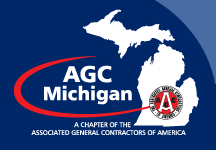 Holding that innocent misrepresentation is not a viable theory of liability under the Seller Disclosure Act (SDA) (MCL 565.951, et seq), the Michigan Court of Appeals recently reversed a judgment awarding Plaintiffs $86,813 in damages and costs and remanded the case for entry of a judgment in favor of the Defendant-Sellers. Roberts v Saffell, ___ Mich App ___ (2008) (Lawyers Weekly No. 07-67463 - 12 pages) (published opinion) (Markey, J., joined by Wilder, J.) (White, J., dissenting). On appeal from the Leelanau County Circuit Court; Rodgers, J.. Click here for the slip opinion.
Holding that innocent misrepresentation is not a viable theory of liability under the Seller Disclosure Act (SDA) (MCL 565.951, et seq), the Michigan Court of Appeals recently reversed a judgment awarding Plaintiffs $86,813 in damages and costs and remanded the case for entry of a judgment in favor of the Defendant-Sellers. Roberts v Saffell, ___ Mich App ___ (2008) (Lawyers Weekly No. 07-67463 - 12 pages) (published opinion) (Markey, J., joined by Wilder, J.) (White, J., dissenting). On appeal from the Leelanau County Circuit Court; Rodgers, J.. Click here for the slip opinion.In this case, Plaintiffs asserted that Defendants failed to disclose a termite infestation in the home they purchased from Defendants. Prior to trial, Plaintiffs successfully moved for dismissal of all claims, except one for innocent misrepresentation. This claim was based on Defendants' "No" answer on their Seller Disclosure Statement in response to the item "History of infestation, if any: (termites, carpenter ants, etc.)"
The Court of Appeals found nothing in the plain terms of the act requiring a transferor of property covered by the SDA "to exercise ordinary care to discover defects in the property being transferred." The act requires a transferor "to answer all items required by MCL 565.957 honestly, based on information actually known to the transferor at the time the SDS is completed." Apart from the SDS, the Legislature had not modified the rule of caveat emptor and its common law exceptions imposing liability for fraud.
A transferor cannot "be held liable for any errors, inaccuracies, or omissions in the SDS unless they were within his personal knowledge." Since liability for innocent misrepresentation can be imposed "without regard to whether the party making the representation knew it was false or was acting in good faith and because MCL 565.955(1) precludes imposition of liability on transferors who lack personal knowledge with respect to errors, inaccuracies, or omissions in an SDS, there is no liability for a disclosure made on an SDS under a theory of innocent misrepresentation."








